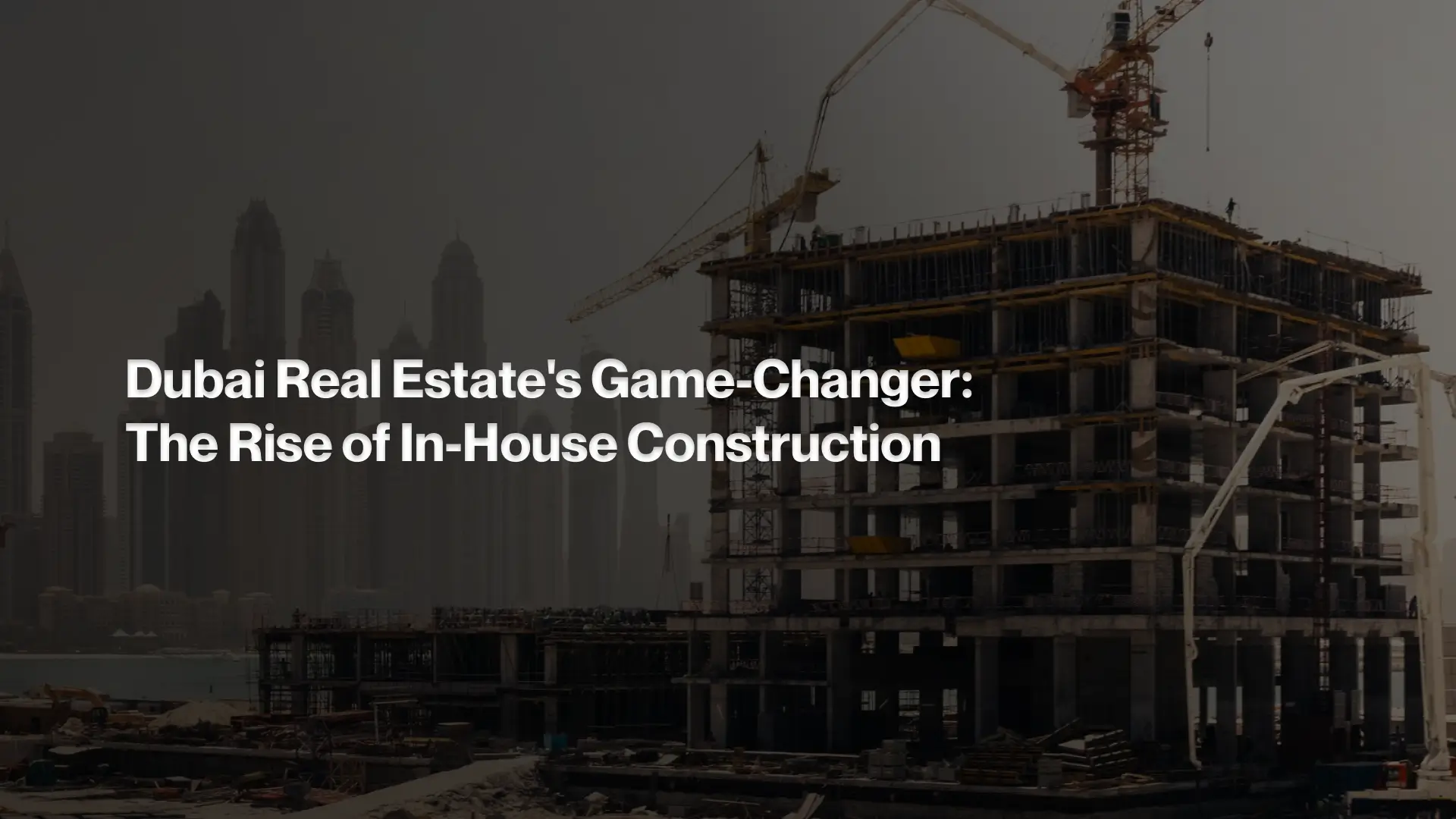
The defining shift of 2025
2025 is the year Dubai developers stopped outsourcing. From Emaar, which launched its own contracting arm, to Samana, which announced 80–90% of new projects will now be built internally, in-house construction is becoming the new norm.
For decades, the model was simple: design, sell, outsource. But high demand, volatile material prices, and reputational pressure have driven developers to bring construction under their own roof. The result? More control, fewer delays, and stronger accountability in Dubai’s booming off-plan market.
Why in-house matters right now
The question every buyer asks: “Will it be delivered on time?”
By owning the build process, developers gain tighter control over workforce management, procurement, and project sequencing. That means fewer dependencies on third parties and more reliable handovers.
The in-house advantage
-
Escrow efficiency: Milestone certifications move faster, so funds are released on time
-
Speed and sequencing: Internal teams resolve issues instantly without contractor disputes
-
Single-point accountability: One entity owns the entire journey from blueprint to keys
-
Specification integrity: What’s promised in show homes is what gets delivered
What this means for real estate agents
Delayed handovers break trust. In-house construction gives you a powerful differentiator:
“This project is built entirely by the developer’s own construction division.”
Agent playbook in 2025:
-
Verify if the contractor is truly in-house or just a subsidiary
-
Track milestone cadence: are certifications on time?
-
Share proof: progress reports tied to the payment schedule
-
Address changes: confirm how modifications are approved and communicated
This positioning builds credibility and shortens decision cycles.
What buyers need to know
For international and first-time buyers, certainty is the top priority.
Buyer checklist before booking:
-
Confirm construction credentials: research the developer’s in-house track record
-
Understand milestone triggers: map your staged payment plan to actual phases
-
Demand quality standards: request mock-ups, specifications, and supplier lists
-
Clarify snagging procedures: know who fixes what, and by when
-
Review SPA terms: contracts must spell out accountability and rectification
Why developers are making the shift
-
Market pressure: Delays are costlier than ever in a high-demand cycle
-
Cost control: Direct procurement protects margins against rising material prices
-
Reputation leverage: On-time delivery builds long-term buyer trust
-
Master-planning scale: Integrated teams manage infrastructure and phasing better
It is no longer about delivering one tower. It is about orchestrating entire communities.
The reality check
In-house construction is not a silver bullet.
Risks to watch:
-
Operational complexity: managing labor, safety, and cash flow in-house is challenging
-
Fixed costs: slower demand makes large internal teams expensive
-
Quality drift: without oversight, standards can slip
How to de-risk:
-
Insist on third-party audits in addition to developer reports
-
Build 4–8 week buffers into your expectations
-
Monitor milestone certifications against escrow-linked payment schedules
Critical questions to ask today
For agents:
For buyers:
-
Who authorizes milestone sign-offs for escrow release?
-
What happens if milestones are missed—are payments paused automatically?
-
What is the average snagging resolution time?
FAQs
Which Dubai developers are building in-house in 2025?
Emaar, Samana, Arada, and Azizi are among the names expanding their in-house construction capabilities.
Does in-house guarantee faster handover?
It does not eliminate all risks, but it reduces third-party delays and improves accountability.
How can I verify if a project is in-house?
Check the SPA, developer announcements, and progress reports. Ask your agent to confirm with Dubai Land Department records.
The bottom line
Dubai’s real estate market is maturing. Developers taking construction in-house signal a shift toward integration and accountability. For agents, it is a trust builder. For buyers, it is clearer responsibility from reservation to possession.
The winners will be those who combine in-house efficiency with transparency, delivering on time and as promised.
Ready to invest with confidence?
Contact the off-plan advisory team at fäm Properties for a curated shortlist of developers that deliver on time. We analyze milestone performance, construction models, and handover records so you invest with clarity.
Want real-time updates, project insights, and launch alerts? Join our exclusive Telegram channel, where serious buyers and investors get the inside track before the market moves. Join today and never miss a game-changing development in Dubai real estate.